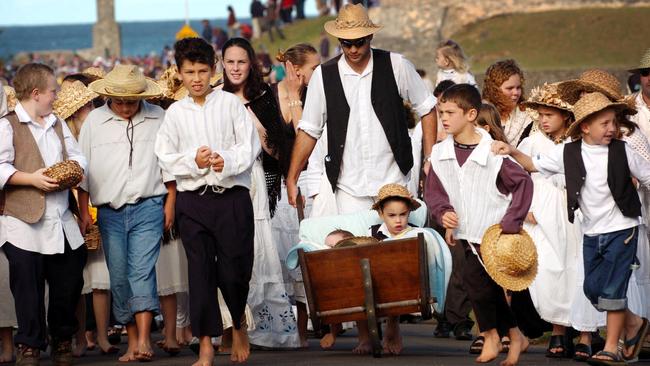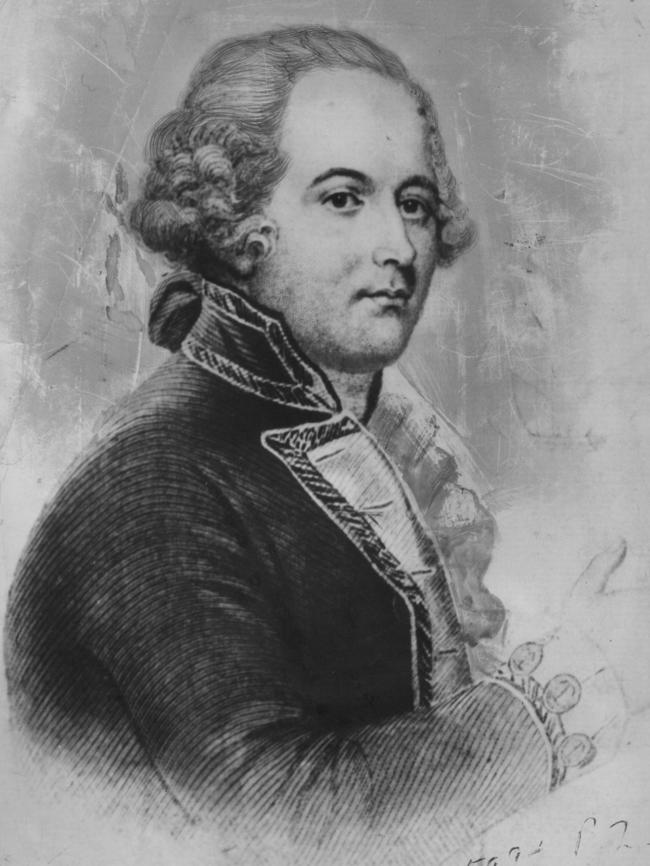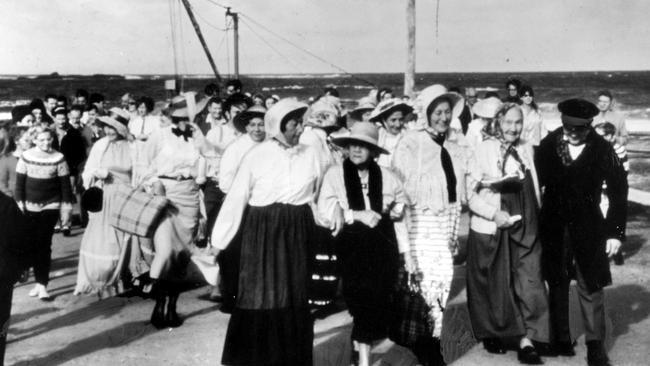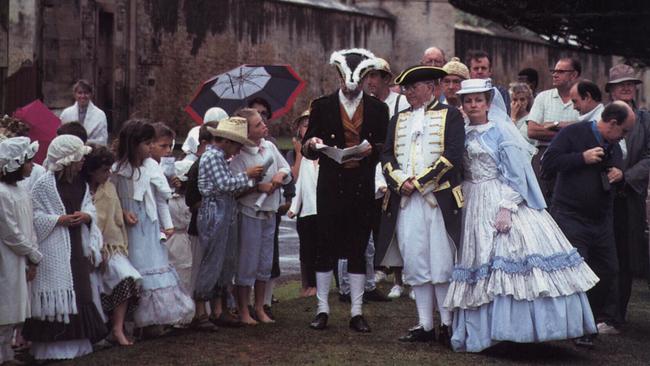Mutineers’ descendants found their new home on abandoned penal colony less than bountiful
CELEBRATED as Bounty Day, on June 8 Norfolk Islanders mark the 160th anniversary of the landing of their forebears after a voyage from Pitcairn to the abandoned Norfolk Island penal colony.

Today in History
Don't miss out on the headlines from Today in History. Followed categories will be added to My News.
“EVERYTHING betokened calmness and peace when the little colony entered on their newly granted possession,” recalled Rosalind Young of Pitcairners arrival on Norfolk Island 160 years ago. But accommodation in abandoned prison barracks, while land was allotted for new houses, dimmed the prospects of their future home for many among the 194 new arrivals.
Celebrated as Bounty Day, on June 8, 2016, Norfolk Islanders mark the 160th anniversary of the landing of their forebears after a four-week voyage from overcrowded Pitcairn to the abandoned Norfolk Island penal colony.
The 193 descendants of Fletcher Christian’s Bounty mutineers abandoned their wooden, thatched-roof huts to board the ship Morayshire on May 3, 1856. A baby was born on the 6200km voyage. Another infant died within days of landing on Norfolk.
After a tearful prayer and farewell to relatives buried on Pitcairn, residents loaded their worldly possessions. One passenger, George Adams, son of mutineer John, complained he would “rather be run through with a sword than leave his home”.


The first attempt to evacuate Pitcairners as their population outstripped island resources was in 1831, when the British government arranged their relocation to Tahiti. A cultural clash between increasingly religious islanders and liberal Tahitians, as well as the death of 12 Pitcairners, sent them home after six months.
Merchant sailor George Nobbs, who arrived at Pitcairn in 1828 to become a pastor and teacher, sailed to Britain in 1852 to lobby for support. Admiral Fairfax Moresby and his wife Eliza organised a committee to raise funds for Nobbs’ return passage to deliver medicines, clocks, clothing, furniture and cooking utensils.
Nobbs returned to find the islanders badly affected by a prolonged drought and an outbreak of influenza. Moresby’s committee then lobbied to have Pitcairners moved to Norfolk Island, a former British penal colony off the NSW coast where roads and houses had been constructed and the land cultivated.
Once inhabited by Polynesians, Norfolk Island was uninhabited when Captain James Cook landed in 1774. Cook claimed the island for Britain, reporting favourably on supplies of pine and flax for shipbuilding.

First Fleet commander Arthur Phillip was ordered to “send a small establishment to ... prevent it being occupied by any other European powers’’, although French explorer Jean-Francois Comte de La Perouse in 1789 dismissed settlement at Norfolk, after finding it impossible to land.
Phillip sent his second-in-command, Lieutenant Philip Gidley King, to the island with a small detachment of soldiers and convicts to establish Norfolk as a farm to supply food to the starving settlement at Port Jackson.
The cost of running the outpost and its isolation led the government to wind up the settlement in 1804. The last people left by 1815, when buildings were burned down and farm animals and crops left to go wild.
In 1824, it was decided that the island’s isolation made it the perfect place to send the worst criminals. Governor Ralph Darling decreed Norfolk as “a place of the extremist punishment short of death”. The first prisoners arrived in June 1825, although expense and distance again became hindrances to settlement. Britain’s decision to abandon transportation saw Norfolk evacuated in 1853. Britain then offered the island to the descendants of some of the most infamous criminals in the history of the English navy.

Fletcher Christian had led disaffected sailors in usurping Captain William Bligh, after gathering breadfruit in Tahiti in April 1789. Bligh, put in the ship’s launch with some loyal crewmen, navigated his way to the island of Tofua in Tonga and then Timor. He later returned to England to raise the alarm.
Knowing the admiralty would hunt them down if word of their mutiny reached England, mutineers tried to settle on the island of Tubuai, but fighting with Tubuaians forced them away. They returned briefly to Tahiti, where several mutineers remained.
Captain Edward Edwards tracked down 14 mutineers in Tahiti. Four would drown but 10 were brought to justice, although only three were hanged. Christian and eight other mutineers and 19 Tahitians including 14 women, sailed on to find a more remote hide-out.
Within 20 years of settling on Pitcairn, eight of nine mutineers were dead, mostly murdered in fights over “ownership” of Tahitian women. The lone male survivor John Adams lived with a harem of nine women, surrounded by 25 children; all called him father.
Although big houses and farm implements on Norfolk appealed to Pitcairners, living in barracks until land was allocated led to regrets “at leaving their beloved Pitcairn”.
Within 18 months 16 people from two families returned to Pitcairn, followed by another 27 in 1863.
Nobbs expressed their disappointment in a letter to Moresby in 1866: “We own nothing beyond our 50 acre (20ha) allotments, not sheep, nor ground on which the sheep feed; all is Government property and may be best
Originally published as Mutineers’ descendants found their new home on abandoned penal colony less than bountiful


